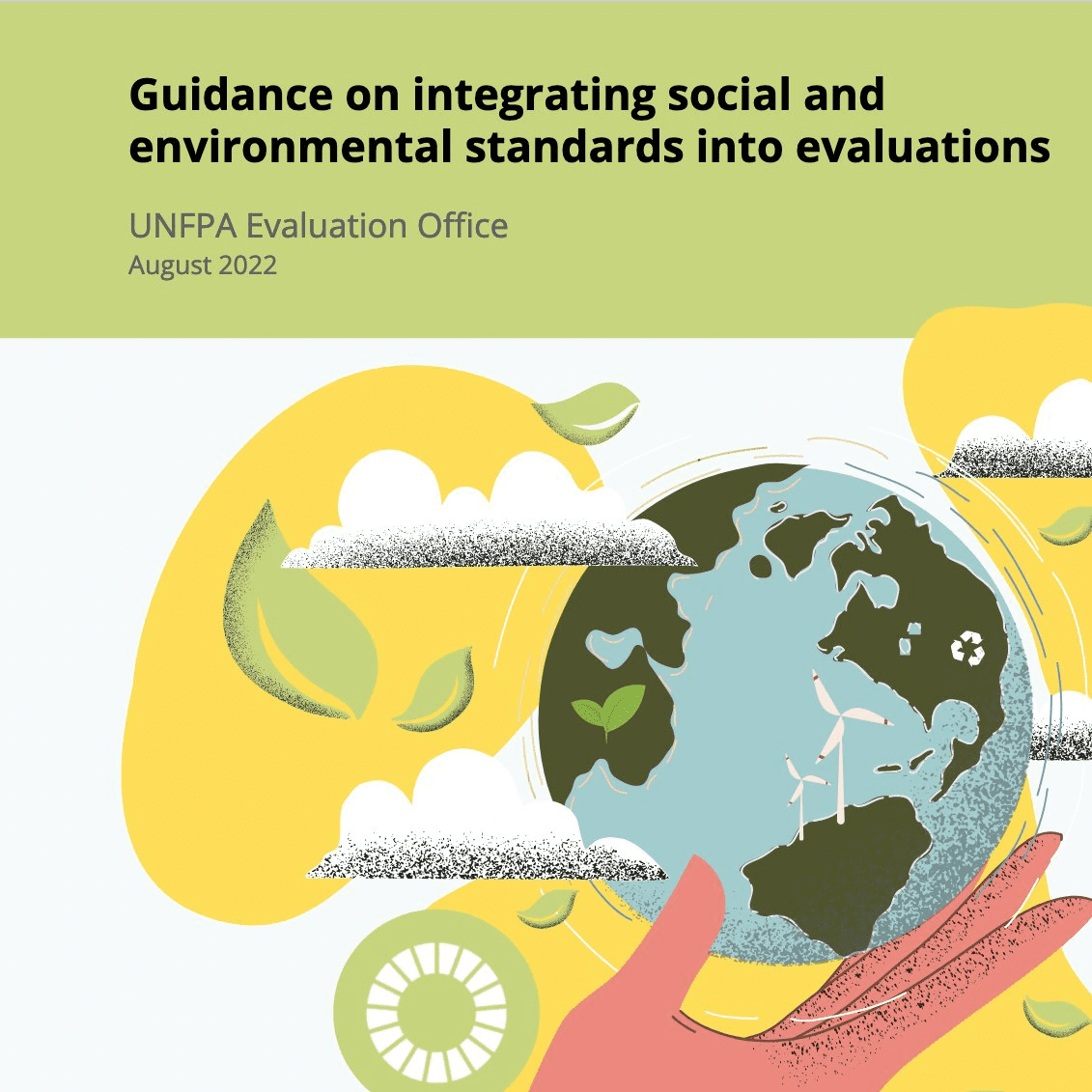In conformity with the UNFPA social and environmental standards, this resource guides evaluation managers and evaluators on mainstreaming social and environmental standards throughout the evaluation process. It also provides examples on integrating environmental standards within evaluation questions pertaining to each evaluation criterion.
The UNFPA Evaluation Office has also developed explicit guidance and tools for the integration of social dimensions such as human rights, gender equality, disability inclusion and on leaving no one behind in evaluations. This guidance should be utilised together with the other available guidelines.
The 2030 Agenda for Sustainable Development (the 2030 Agenda) and the Sustainable Development Goals (SDGs) recognize the three pillars of sustainable development – social, economic and environmental – and the interrelationships among them. The Sendai Framework for Disaster Risk Reduction (2015-2030), the Paris Agreement for Climate,2 and the Addis Ababa Action Agenda (AAAA) of the Third International Conference on Financing for Development all reinforce the call for coherent and integrated system-wide strategic solutions for protecting the planet and its natural and cultural resources. The United Nations Sustainable Development Cooperation Framework (UNSDCF) also underpins the importance of social and environmental safeguards and accountability measures for the achievement of the 2030 Agenda.
Responding to the call by the Secretary-General of the United Nations in December 2018, the United Nations system developed the Strategy for Sustainability Management in the United Nations System, 2020-2030 – Phase I: Environmental sustainability in the area of management (CEB/2019/1/Add.1); and Phase II: Towards leadership in environmental and social sustainability (CEB/2021/2/Add.1).
The strategies present a two-phased approach for achieving social and environmental sustainability across all functions of the United Nations system. The Sustainability Strategy Phase I calls on all United Nations entities to integrate and apply social and environmental safeguards into their programmes, with a target of 100 per cent of United Nations entities applying safeguards to their programmes by 2030. The Sustainability Strategy Phase II incorporates a more comprehensive sustainability strategy encompassing environmental and social sustainability dimensions in policies, programming and support functions.

You must be logged in in order to leave a comment